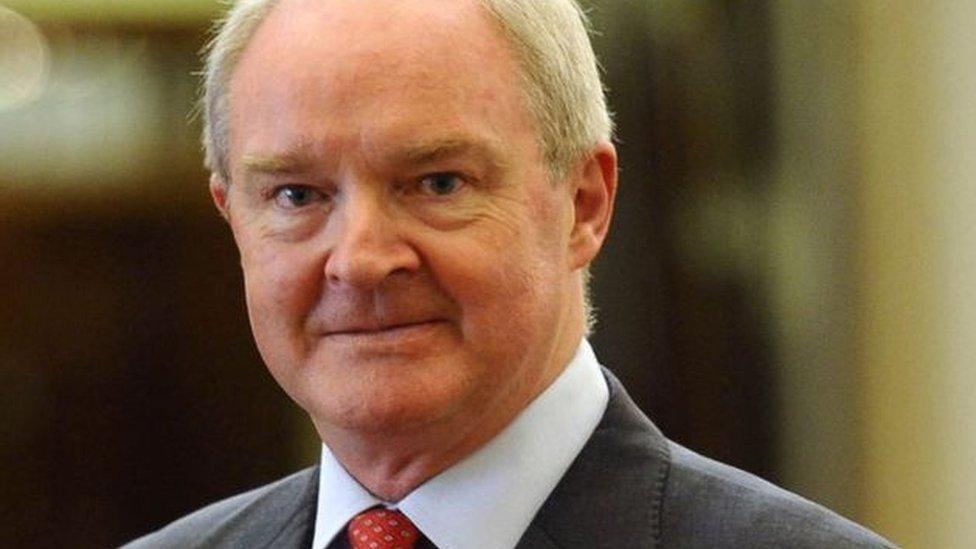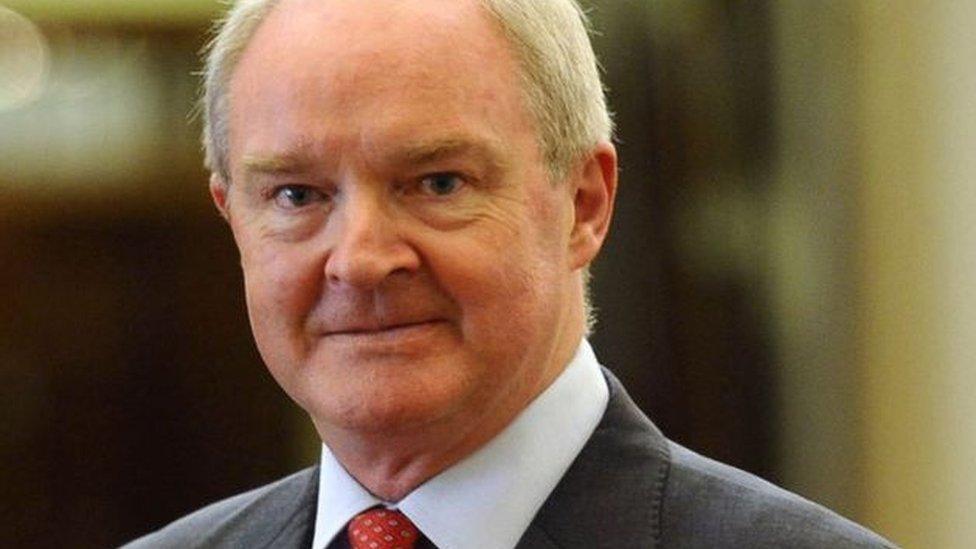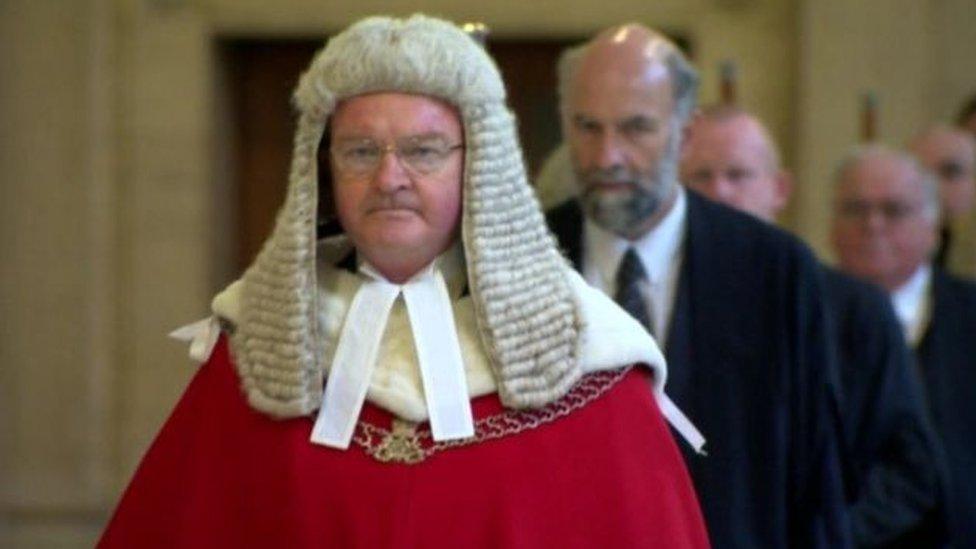Legacy Inquest Unit being set up by Department of Justice
- Published

The Department of Justice is to set up a Legacy Inquest Unit in the Coroners Service to process Troubles inquests.
It aims to speed up legacy inquest arrangements and deal with outstanding cases.
Allocations in the new budget will cover the estimated cost of £55m over six years.
There are currently 52 legacy inquest cases relating to 93 deaths at various stages of the investigation and inquest process.
The cases relate to deaths between the 1970s and 2000s.
The new unit will operate under the remit of the Lord Chief Justice.
The six-year programme includes an initial 12-month period to recruit necessary specialist staff and set up new systems.
In 2015, Brigid Hughes won the right to challenge the failure by Stormont's executive office, the justice department and the secretary of state to put in place adequate funding to prevent further delays in holding legacy inquests.
Her husband, Anthony, was a civilian shot dead along with eight members of the IRA in May 1987 by the SAS as republicans attacked Loughgall police station in County Armagh.
The Stormont House Agreement includes a £150m package to deal with all legacy issues, but the government said financial resources would not be released until political consensus is reached on dealing with the past.
Northern Ireland's Lord Chief Justice, Sir Declan Morgan, had advanced a plan for having all cases dealt with within five years.

Lord Chief Justice Sir Declan Morgan called for extra funding for inquests
In 2016 a paper was drawn up by the DoJ to bid for funds based on Sir Declan's blueprint.
Lawyers for Mrs Hughes alleged former first minister Arlene Foster stopped it from being discussed by her executive colleagues for political reasons.
Last year, Judge Sir Paul Girvan ruled that Mrs Foster's decision not to consider bidding for funding for legacy inquests was flawed and unlawful.
On Thursday, Peter May, permanent secretary of the Department of Justice, said: "The delays in progressing legacy inquests have been unacceptable to families involved and to the justice system.
"In the Hughes Judicial Review judgment, the court ruled that progress on securing funding for legacy inquests should not be linked with agreement on the overall legacy package but taken forward as a separate issue.
"This initiative takes account of that judgment and will support a significant expansion of capacity to clear the outstanding legacy inquests over the next six years."
The Lord Chief Justice, Sir Declan Morgan, said: "On 12 February 2016 I proposed a plan for dealing with what have now come to be known as the legacy inquests
"Legacy inquests have an impact on bereaved families, those who have served in the police and armed forces, other state agencies; and very often the wider communities in which these deaths occurred.
"I am pleased that funding is now going to be provided to implement the plan for dealing with legacy inquests which I proposed over three years ago."
- Published5 September 2017

- Published12 February 2016
